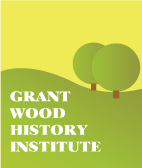Teaching Across the Curriculum
Over the past couple of years, the college at which I work has become more and more focused on issues of sustainability. There have been numerous changes around campus - more recycling stations; a retrofitting of energy-efficient light bulbs; trays removed from the cafeteria; and the founding of a student-run community garden - but to date, the greatest share of teaching about sustainability has fallen to the faculty in Environmental Studies.
This week, twenty-two faculty members attended a two-day workshop to consider ways of integrating the principles of sustainability into our curriculum. We came from a dozen departments and programs - Biology, Dance, Classics, Computer Science, Creative Writing, Economics, History, Journalism, Modern Languages, Political Science, Physics, and Psychology (as well as our colleagues from Environmental Studies). Through readings, speakers, spirited discussion, and collaborative workshops, we each worked to create an assignment we might use in an existing course, meeting both the goals of our discipline and our college-wide commitment to teach our students to be stewards of the world.
Layering the skills and subjects that our students learn in a single class period is common to almost all teachers. Part of my job, for example, is to teach my students to become better writers in every class they take. Elementary school teachers perhaps face this challenge even more acutely - it's hard to find time to teach social studies when No Child Left Behind puts such pressure on schools to improve reading and math scores above all else. Bringing History Home tackles this problem head on, working with teachers to enable them to meet their literacy goals through social studies - to have read-aloud books that reinforce historical thinking; to have students write about history as a way of learning vocabulary, sentence-structure, and organization.
I thought of this summer's fifth-grade teachers often during the sustainability workshop and their creativity in finding ways to teach literacy, science, and math goals using Columbus' 1493 letter to the King of Spain. I needed a jolt of their creativity, since it was challenging for me to find a way to honor the importance of educating our students about sustainability while maintaining the values of my discipline. While communities in the past grew and retracted according to their relationship with the natural world (which didn't always include respecting it - many cultures have tried to dominate their local environment, or harness resources in ways that, with hindsight, we can see were damaging) 'sustainability' is a twentieth-century concept. 'Sustainability,' as a movement, is also rooted in a specific time and place, and the principles we discussed in our workshop came out of a western framework of looking at the world. Applying 'sustainability' to non-Western cultures - like the Arawak or Carib of the fifteenth-century Caribbean - seemed to be to be another instance of trying to make non-Western cultures bend to Western desires. Handled badly, it could be colonialism all over again.
In the end I found a way to accommodate both the promises and pitfalls of consciously thinking about sustainability in the classroom. In working with fifth-grade teachers this summer on Columbus' letter, I asked them to think about what Columbus' words told us about Europe, instead of the Caribbean; to consider how we learn about organization of Europe's cities, harbors, fields, and homes by the comparisons Columbus makes to what he sees in what - to him - is a new world. I tweaked this idea just a little more to make an assignment for the students in Introduction to Latin American History:
What does The Columbus Letter of 1493 tell us about the natural resources most prized in Europe, and the way in which the social, political, economic, and religious systems of that region were determined by both the presence of those resources, and their lack?
I hope that in answering this question, my students will become more conscious of the way in which human societies choose to use the resources around them, and the way in which political events are often linked to the search for more of what a country or community deems necessary to support their way of life. That's a transferable skill that will serve them well as they think about their own lifestyle, and the issues of sustainability that face us today. Still, the question is rooted in the past, and asks students to think critically about a major shift in world events from within the context of that time.
My experience teaches me that we can reach untold combinations of goals in our teaching, provided we're given the time, intellectual support, and sometimes money necessary to make it happen. I needed two days of intense discussion with my colleagues to figure out how to make this particular challenge work for me. The same is often true of our Bringing History Home teachers, and it's a delight to be part of that process from a different perspective - to brainstorm with smart, inventive teachers how to have students compare the foodstuffs of the Caribbean and Europe to meet the science goal of 'understanding nutrition', or to consider if there are math goals we can reach by having students calculate the distance Columbus thought he had traveled with the actual distance he did.
At the heart of all of these challenges met is collaboration - collaboration between teachers of all levels, between mentors and new learners, between non-academic experts and students of every age. Perhaps that is the greatest unexpected reward of any experience of teaching across the curriculum - the sense that we are part of a team, and can rely on one another's creativity and imagination in providing the education our students need.
